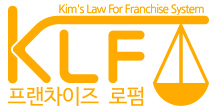Your store has a lot of regular customers, so sales are quite high, and you recently spent a lot of money to renovate the interior. However, as the lease expiration date approaches, the building owner says he has no intention of renewing the lease and asks you to vacate the building. I asked him to transfer the store to someone else so that I can get my key money back, but he refuses. In this case, is there no way to recover the money I previously invested?
Below, we will look at how to recover key money when the building owner interferes with the transfer of the lease, and the reasons why the building owner can refuse to transfer the lease.
Can I transfer my store lease if the building owner objects?
In principle, transferring the lease of a building to another person requires the approval (consent) of the building owner, and the building owner can also freely decide whether to approve the transfer of the lease. Therefore, even if the lease of a building is transferred to another person without the approval of the building owner, it is invalid and, on the contrary, it is a serious breach of contract that can lead to the termination of the lease agreement for the building owner.
However, in the case of commercial leases, the building owner cannot refuse approval unless there are special reasons as stipulated in the Commercial Building Lease Protection Act. In other words, if a commercial tenant transfers the lease to another person from 6 months before the end of the lease period to the end of the lease and requests the building owner to approve the transfer of the lease, approval cannot be refused unless there are special reasons as stipulated in the Commercial Building Lease Protection Act (Article 10-4 of the Commercial Building Lease Protection Act).
At this time, the timing of the tenant transferring the lease of the store and requesting approval is important. In other words, if the lease agreement has more than 6 months remaining or has already ended, the protection of the above law is not available. In addition, since it is not certain whether the building owner (or lessor) will approve the transfer of the lease, it is necessary to include in the lease transfer agreement that the contract is invalid if the building owner refuses approval.
What are the grounds for a building owner to refuse to assign a lease?
According to the Commercial Building Lease Protection Act, if the new tenant (=transferee) is unable to pay rent or is likely to fail to comply with the lease agreement, the transfer may be refused (Article 10-4, Paragraph 2). However, since it is unlikely that the person who signs a key money contract and takes over the store will be unable to pay rent or fail to comply with the lease agreement, the building owner cannot actually refuse to transfer the lease.
However, in any case, as a tenant, you have a duty to cooperate so that the building owner can verify whether the new tenant has the ability to pay rent, etc., and you must make efforts such as arranging a meeting between the two people and providing the building owner with information that you know, such as the new tenant's contact information.
If the building owner only issues a transfer notice without making such efforts and does not provide an opportunity to learn about the new tenant, the landlord cannot be blamed even if the building owner refuses to transfer the lease.

Attorney Sunjin Kim has been mediating franchise disputes based on coexistence for the past 10 years and is working to restore the franchise to its original state. KLF handles nearly 100 franchise lawsuits every year and is Korea's top franchise-specialized law firm that serves as an advisor to several franchise companies.
KLF Franchise Law Firm Room 205, 2nd floor, 151 Seochojungang-ro, Seocho-gu, Seoul 02-738-9600




